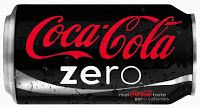The CAFC dismissed an appeal from the TTAB's May 3, 2019 decision [here] dismissing the Royal Crown parties' consolidated opposition to sixteen trademarks containing the term ZERO. In the opposition, RC contended that the various ZERO-formative marks should be denied registration "absent the entry of a disclaimer of the term 'zero.'" When the case was remanded to the Board in June 2018 because the Board had applied the wrong standard for genericness [TTABlogged here], Coca-Cola filed a motion to amend each application to add a disclaimer of ZERO, which motion the Board granted. On this appeal, the CAFC ruled that there was no case or controversy to decide. Royal Crown Company, Inc., and Dr. Pepper/Seven-Up, Inc. v. The Coca-Cola Company, Appeal No. 2019-2088 (Fed Cir. August 3, 2020) [not precedential].

In its original decision, the Board had ruled that Coca-Cola's marks could be registered with a disclaimer of ZERO because they had acquired distinctiveness. The CAFC instructed the Board, on remand, to consider whether ZERO refers to a "key aspect" of the genus, and to make an express finding regarding the degree of the term's descriptiveness. Coca-Cola then filed its motion to add the disclaimers.
In this appeal Royal Crown raised three challenges: that the granting of the motion was procedurally improper, that the Board was required by the Administrative Procedure Act (APA) to render a reasoned decision on the merits, and that the disclaimers did not moot this appeal since Coca-Cola might file new ZERO applications in the future. The court, however, found that the Board did not abuse its discretion in granting the motion, and that entry of the disclaimer render this appeal moot.
Rule 2.133(a) allows the Board to grant amendments to an opposed application even with consent of the other party. RC offered no support for its argument that such motions are forbidden after trial, and the court found it "improbable" that the Board has no power to grant a motion entering a disclaimer when that is all the opposer seeks.
RC contended that because Coca-Cola did not concede whether ZERO is generic or merely descriptive, Coca-Cola may apply for other ZERO marks. The court observed that "litigation is conducted for the purpose of obtaining relief, not an advisory opinion." Although such an advisory opinion might be useful to RC, that interest is "too speculative to invoke the jurisdiction of this court."
And so the court dismissed the appeal.
Read comments and post your comment here.
The content of this article is intended to provide a general guide to the subject matter. Specialist advice should be sought about your specific circumstances.
We operate a free-to-view policy, asking only that you register in order to read all of our content. Please login or register to view the rest of this article.

